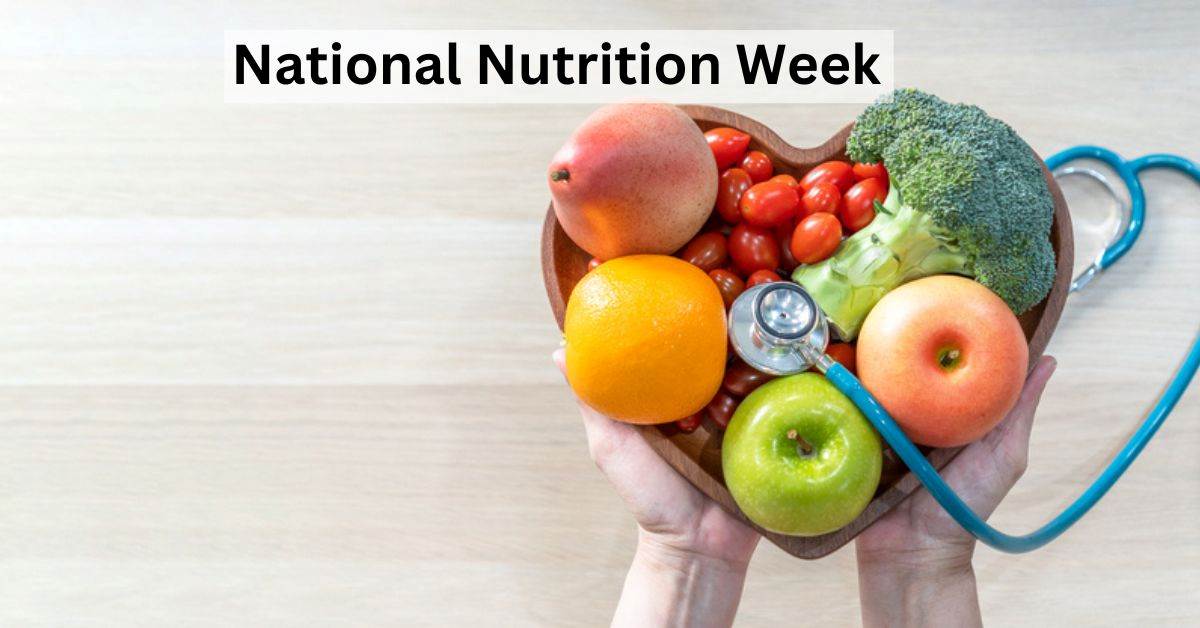Ageing is an inevitable part of life, and as we grow older, our nutritional needs evolve. Proper nutrition becomes increasingly crucial for maintaining good health, preventing chronic conditions, and enhancing the quality of life in our golden years. As we grow up we need unique dietary needs, with a focus on managing chronic conditions and achieving a balanced diet for a longer and healthier life.
I. The Changing Nutritional Needs of Seniors on National Nutrition Week
As we age, several factors influence our dietary requirements:
1. Reduced Metabolism: Metabolism naturally slows down with age, leading to a decreased need for calories. However, nutrient needs remain high.
2. Muscle Mass Loss: Muscle loss can occur, affecting daily activities. Adequate protein intake is vital for preserving muscle mass.
3. Digestive Changes: Seniors may experience digestive issues, making it important to choose foods that are easy to digest.
II. Managing Chronic Conditions Through Nutrition and diet
Many seniors deal with chronic conditions that can be managed or improved through dietary choices:
1. Heart Health: A heart-healthy diet emphasizes fruits, vegetables, whole grains, lean proteins, and limited saturated and trans fats. It can help manage high blood pressure and cholesterol levels.
2. Diabetes Management: Controlling blood sugar levels is crucial for seniors with diabetes. A diet rich in fibre, complex carbs, and portion control can help stabilize glucose levels.
3. Osteoporosis Prevention: Calcium and vitamin D intake are vital for bone health. Dairy products, leafy greens, and supplements when necessary can help prevent osteoporosis.
4. Arthritis Relief: Foods with anti-inflammatory properties, such as fatty fish, nuts, and berries, may reduce arthritis symptoms.
III. Achieving a Balanced Diet for Seniors
A balanced diet is the cornerstone of nutrition in seniors
1. Fruits and Vegetables: Seniors should consume a variety of colourful fruits and vegetables for essential vitamins, minerals, and antioxidants.
2. Protein: Adequate protein intake supports muscle health. Lean meats, poultry, fish, beans, and nuts are excellent sources.
3. Whole Grains: Whole grains provide fibre and sustained energy. Opt for whole wheat, brown rice, and oats.
4. Dairy or Alternatives: Calcium-rich foods like low-fat dairy or fortified plant-based alternatives promote bone health.
5. Fluid Intake: Dehydration risk increases with age. Seniors should drink plenty of water and include hydrating foods like soups and fruits in their diet.
Conclusion: A Recipe for Healthy Aging
Nutrition plays a pivotal role in ageing gracefully and maintaining a high quality of life. By understanding and meeting the unique dietary needs of the elderly, managing chronic conditions, and embracing a balanced diet, seniors can savour their golden years with vitality, resilience, and good health. It's never too late to make positive dietary changes that contribute to a longer, healthier life

 Nutrition is key for healthy ageing. Discover how to meet the required dietary needs, on this national nutritional week manage health issues, and enjoy a longer, happier life in your golden years.
Nutrition is key for healthy ageing. Discover how to meet the required dietary needs, on this national nutritional week manage health issues, and enjoy a longer, happier life in your golden years.









.jpeg)











.jpg)








